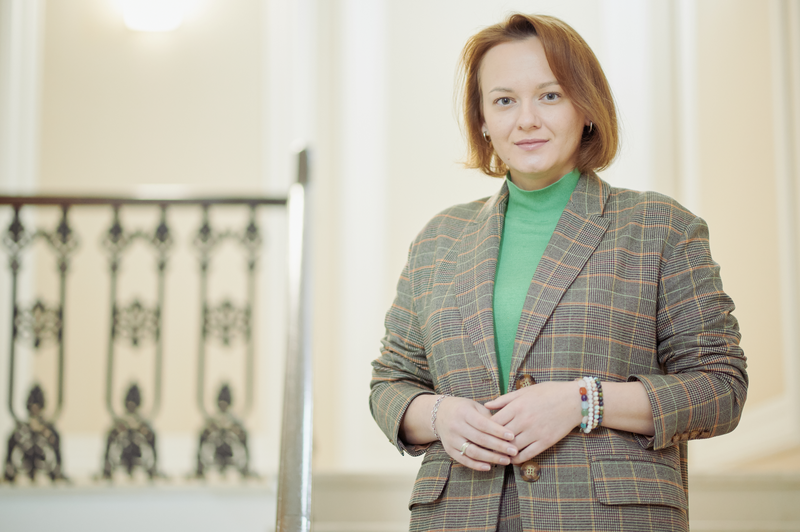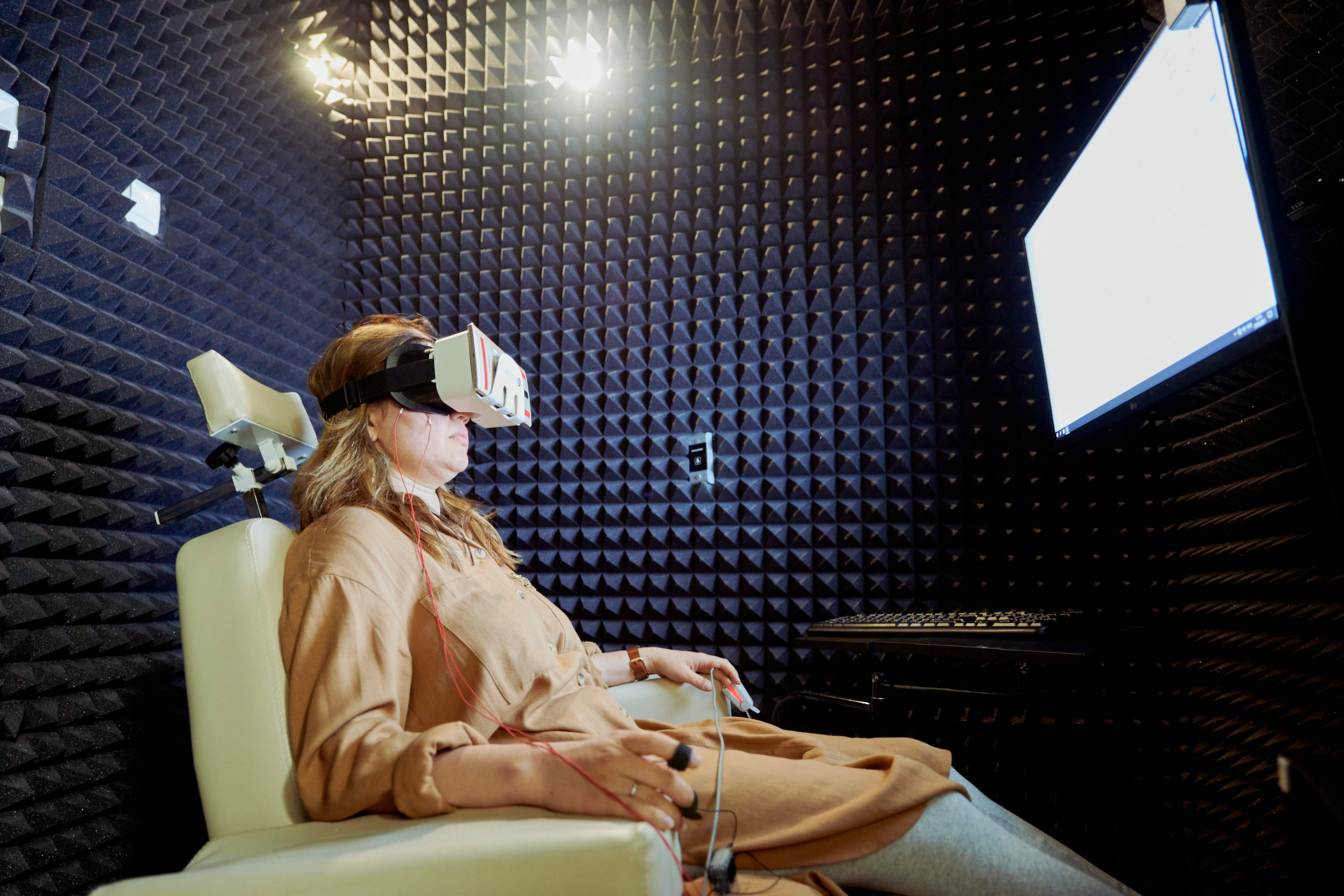Strategic Projects: Producing Scientific Results of Public Relevance

About a year ago, HSE University was among the first group of Russian universities to receive a grant from the ‘Priority 2030’ Strategic Academic Leadership Programme and began implementing strategic research projects. HSE University recently defended its report before the programme's board. Elena Odoevskaya, HSE University Vice Rector and coordinator of the HSE Development Programme for the Period until 2030 and the ‘Priority 2030’ programme, spoke to the HSE News Service about what has been achieved this year and how the format of strategic projects is changing at the university.
— How and why did strategic projects come about at HSE University?
— As part of the HSE Development Programme for the period until 2030, we have begun to transform our research work into a new format of large interdisciplinary full-cycle projects with economic, social and scientific significance.
— Once the HSE Development Programme was adopted, the university became a participant in the ‘Priority 2030’ Strategic Academic Leadership Programme. Was the result a collaboration between the two programmes?
— Yes, together they form part of our integrated development programme. The goal of ‘Priority 2030’ is to form a broad group of leading universities in Russia by 2030—centres of scientific, technological and socioeconomic development for the country. In alignment with the format of the ‘Priority 2030’ programme, we have formed five strategic projects that focus on people and their needs in a changing world: ‘Human Success and Autonomy in a Changing World’, ‘Social Policy for Sustainable Development and Inclusive Economic Growth’, ‘National Centre for Science, Technology and Socio-Economic Forecasting’, ‘Digital Transformation: Technologies, Effects, Efficiency’ and ‘Evidence-based Urbanism’.
— The university team recently presented the results of the ‘Priority 2030’ programme at a defence before the programme’s board. What was the focus of the defence?
— In presenting this year's results, we have focused on the specific effects for society, the economy and ultimately for each individual that have been achieved and that can be achieved as a result of the work of our researchers. Despite the first year being just a start-up period, we already have a number of interesting developments based on the groundwork available at HSE University.
Here are just a few examples: in the ‘Human Success and Autonomy in a Changing World’ strategic project, several projects in the next one to two years of implementation will be taken to the TRL 6-8 level (full-featured demos and prototypes working in real conditions, ready for subsequent scaling/production). These are tools to increase human resilience to the perception of fakes and deep fakes, as well as tools to assess the characteristics of human autonomy, and supra-professional skills.
HSE University in the ‘Priority 2030’ programme in 2021–2022
28 base chairs of Russian Academy of Sciences (RAS) institutions
30 mirror laboratories in partnership with regional universities
528 employees of Russian universities awarded internships at HSE University
200+ research and analysis projects commissioned by regional governments and businesses
15,000 network students and 43 universities
11 intellectual competitions involving 155,000 schoolchildren
496 partner schools
In 2022 the strategic project team at the ‘National Centre for Scientific, Technological and Socio-Economic Forecasting’ presented scenario analyses of socio-economic development, climate change, science and technology development based on big data analysis using the unique iFORA system.
Next year we aim to present an open database on sanctions, which will be constantly updated. Our colleagues have done a tremendous job in terms of systematising all the knowledge regarding the restrictive measures that have been imposed, as well as when and how they were intensified, right down to politicians' public statements on social media regarding the sanctions. This is an extremely useful tool for researchers, government representatives and the public.
The strategic project ‘Digital Transformation: Technologies, Effects, Efficiency’ provides an empirical basis for assessing the social effects of digital transformation and trends in the development of artificial intelligence.
Our insights into how technology is used by society and companies forms the basis of proposals for measures to support the IT industry.
A very promising area of this project is research into 6G networks.
— How are things with the ‘Evidence-based Urbanism’ strategic project?
— A year into the project, it has been shown that it is at a high level of readiness in terms of bringing technology to the market. Some of it has already been implemented in the work of city administrations. For example, the project has developed original transport modelling software, which is superior to foreign analogues in terms of functionality. Given the high degree of development of Evidence-based Urbanism, it was decided that this area will be further implemented as part of the University's research policy, but not as a strategic project; its team will continue to implement projects commissioned by industrial partners and government authorities.

— Will a new strategic project be created?
— Yes, we invited the programme board to support the strategic project ‘The Resilient Brain: Neurocognitive Technologies for Adaptation, Learning, Development and Rehabilitation in a Changing Environment’. The project will contribute to combating neurodegenerative diseases and mental disorders, addressing disability, and promoting active longevity. The project is expected to bring new products to the market quickly, for example in the field of personalised neuroprosthetics. It is worth mentioning that HSE University started developing the field of cognitive science quite a while ago.
Now, in 2022, there is not just a research unit within the university, but a globally competitive neuroscience research cluster.
Our colleagues are developing unique technologies; they have a substantial number of partnerships with medical organisations. We expect that specific technologies will be brought to market in the next two or three years of the project.
— Is the practice-oriented approach, involving external partners, one of the characteristics of the strategic projects?
— This is a conscious policy, because our task is to make sure that our research is full-cycle research—from the formulation of a hypothesis to a specific technology, prototype, or know-how. It is necessary for research to have a customer or consumer: an industrial partner, a specific company. In some cases, it’s HSE University itself, such as when we are talking about filling our educational products; or our founder, the Russian government, if we are talking about scenarios for the development of a particular industry. They can also be ordinary people for whom specific products are created. So our task is to provide a tool, a methodology, a development that will live on without us.
HSE Strategic Projects Today
60+ research projects
40+ faculties, labs, and centres
650 researchers
55% researchers aged 39 or younger
13 consortiums with other universities
— Are there any outside partner universities of the strategic projects?
— We have about 13 consortiums. For instance, one of our strategic projects has a consortium with Sechenov University—a leader in training for the healthcare and pharmaceutical industries—on foresight research in the field of drag design. The number of such consortia will continue to grow in future.
— Apart from the new ‘Resilient Brain’ strategic project, are there any other changes planned for HSE University's participation in ‘Priority 2030’?
—Like all higher education institutions, we need to rethink our international activities. To achieve this, we have decided to incorporate a new policy on the ‘Decolonisation of International Education: Expanding Spaces of Friendship and Mutual Trust’. We have already started creating an educational and research cluster in Eurasian integration, Oriental Studies and African Studies to win the battle for international talent. In doing so, HSE University will share its experience in international communication with other universities.

This year, as you know, we were also faced with the withdrawal of global educational platforms, such as Coursera, from cooperation with Russian universities. This is a serious challenge because, for example, HSE University had a base of around two million participants in our courses there, and this was effectively cancelled. But we supported all those who studied with us, for example, in the online master's programme: they are now studying on our internal Smart LMS platform.
The ‘Priority 2030’ Strategic Academic Leadership Programme has been implemented since May 2021. It is planned that the programme will concentrate resources to ensure the contribution of Russian universities in achieving the national development goals of the Russian Federation until 2030, increase the scientific and educational potential of universities and research organisations, and ensure the participation of institutions of higher education in the socio-economic development of the constituent entities of the Russian Federation. The goal of ‘Priority 2030’ is to create more than 100 progressive modern universities in Russia by 2030—centres of scientific and technological and socio-economic development for the country. HSE University, together with eight other universities, is included in the first group of the programme under the ‘Research Leadership’ track.
See also:
Designing an Accurate Reading Skills Test: Why Parallel Texts are Important in Dyslexia Diagnosis
Researchers from the HSE Centre for Language and Brain have developed a tool for accurately assessing reading skills in adults with reading impairments. It can be used, for instance, before and after sessions with a language therapist. The tool includes two texts that differ in content but are equal in complexity: participants were observed to read them at the same speed, make a similar number of errors, and understand the content to the same degree. Such parallel texts will enable more accurate diagnosis of dyslexia and better monitoring of the effectiveness of interventions aimed at addressing it. The paper has been published in Educational Studies.
Intellectual Capital in the Face of Shocks: Russia and Iran Explore Internationalisation
In today's issue of Schola, Mariya Molodchik, Senior Research Fellow at the International Laboratory of Intangible-Driven Economy and Professor at the School of Economics and Finance at HSE University’s Campus in Perm, discusses a joint project with Iran University of Science and Technology, titled 'Internationalization of Companies from Developing Countries: The Role of Intellectual Resources in Response to Exogenous Shocks.'
HSE Researchers Introduce Novel Symmetry-Aware Neural Network Architecture
Researchers at the HSE Laboratory for Geometric Algebra and Applications have developed a new neural network architecture that can accelerate and streamline data analysis in physics, biology, and engineering. The scientists presented their solution on July 16 in Vancouver at ICML 2025, one of the world's leading conferences on machine learning. Both the paper and the source code are publicly available.
Students from HSE and Other Universities Carry Out Research Expedition at New Chersonesos
As part of the Rediscovering Russia student expedition programme, HSE University organised a research trip under the framework of the School for Young Humanities Scholars to the New Chersonesos museum and church complex in Sevastopol. The results of this expedition will form the basis for proposals on educational projects aimed at shaping young people’s historical memory of the role of Chersonesos, Crimea, and the Byzantine legacy in the history of Russian culture and statehood.
HSE Researchers Determine Frequency of Genetic Mutations in People with Pulmonary Hypertension
For the first time in Russia, a team of scientists and clinicians has conducted a large-scale genetic study of patients with pulmonary arterial hypertension. The team, which included researchers from the International Laboratory of Bioinformatics at the HSE Faculty of Computer Science, analysed the genomes of over a hundred patients and found that approximately one in ten carried pathogenic mutations in the BMPR2 gene, which is responsible for vascular growth. Three of these mutations were described for the first time. The study has been published in Respiratory Research.
First Caucasus School on Experimental Research and Cognitive Sciences Takes Places in Adygea
On September 17–20, 2025, the First Caucasus School on Experimental Research and Cognitive Sciences took place at the Gornaya Legenda venue of Adyghe State University (ASU). The event was organised by the ASU Experimental Linguistics Laboratory, the HSE Centre for Language and Brain, and the HSE Centre for Sociocultural and Ethnolinguistic Studies. The school brought together over 50 participants—students, doctoral candidates, and early-career researchers from across Russia, along with lecturers and speakers from France, Serbia, China, Turkey, Kazakhstan, and Uzbekistan.
HSE Scientists Reveal How Disrupted Brain Connectivity Affects Cognitive and Social Behaviour in Children with Autism
An international team of scientists, including researchers from the HSE Centre for Language and Brain, has for the first time studied the connectivity between the brain's sensorimotor and cognitive control networks in children with autism. Using fMRI data, the researchers found that connections within the cognitive control network (responsible for attention and inhibitory control) are weakened, while connections between this network and the sensorimotor network (responsible for movement and sensory processing) are, by contrast, excessively strong. These features manifest as difficulties in social interaction and behavioural regulation in children. The study has been published in Brain Imaging and Behavior.
Scientists Develop New Method to Detect Motor Disorders Using 3D Objects
Researchers at HSE University have developed a new methodological approach to studying motor planning and execution. By using 3D-printed objects and an infrared tracking system, they demonstrated that the brain initiates the planning process even before movement begins. This approach may eventually aid in the assessment and treatment of patients with neurodegenerative diseases such as Parkinson’s. The paper has been published in Frontiers in Human Neuroscience.
Global AI Trends Discussed at International Foresight Workshop at HSE University
At an international foresight workshop on artificial intelligence held at HSE University, Russian and foreign scholars discussed the trends and challenges arising from the rapid development of AI.
'Biotech Is Booming Worldwide'
For more than five years, the International Laboratory of Bioinformatics at the HSE Faculty of Computer Science has been advancing cutting-edge research. During this time, its scientists have achieved major breakthroughs, including the development of CARDIOLIFE—a unique genetic test unmatched worldwide that predicts the likelihood of cardiovascular disease. With the active participation of HSE students, including doctoral students, the team is also working on a new generation of medicines. In this interview with the HSE News Service, Laboratory Head Maria Poptsova shares insights into their work.


